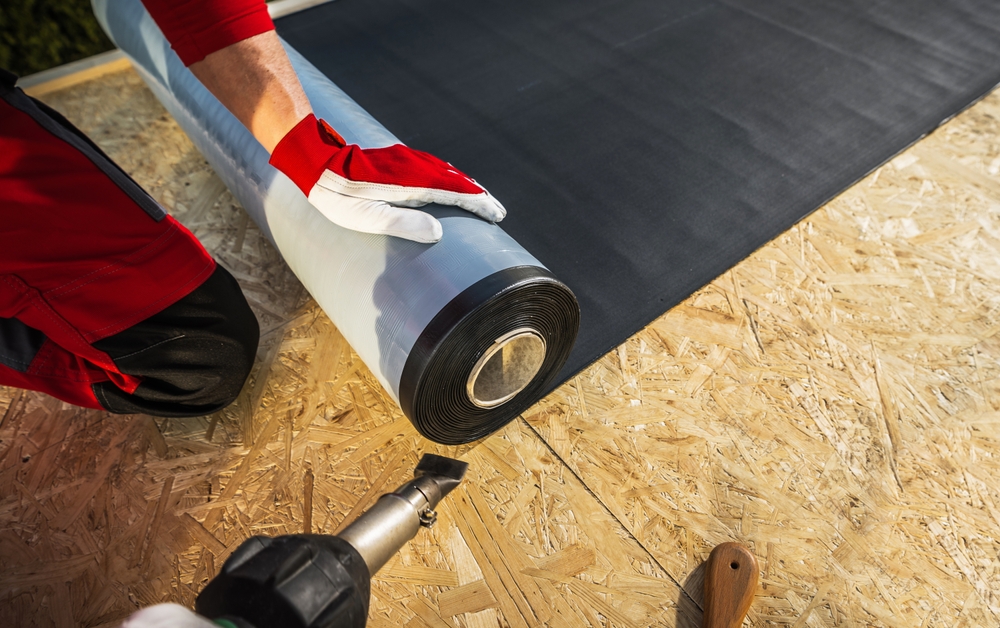Introduction to Choosing the Right Roofing Material
When it comes to protecting your property, the roof over your head isn’t just another building component; it’s a pivotal layer of defense against the weather and environmental elements. That’s why making an informed decision about the roofing material for your Nashville, Tennessee home or business is as crucial as any other investment decision you make. At Sentri Roofing, we understand the importance of not only selecting a roof that matches the aesthetic of your property but also one that stands up to the unique challenges of our local climate.
Meet Sentri Roofing: Nashville’s Roofing Authority
As Nashville’s trusted source for all things roofing, Sentri Roofing brings experience, expertise, and a commitment to excellence to every project. Our deep roots in the community and comprehensive understanding of Tennessee’s roofing needs allow us to guide you through the myriad of options available, ensuring you choose a roof that meets your demands for durability, efficiency, and style.
Introduction to PVC and TPO Roofing Materials
In the ongoing pursuit to offer the best roofing solutions, two materials frequently emerge as top contenders: PVC (Polyvinyl Chloride) and TPO (Thermoplastic Olefin). Both choices are revered for their protective qualities and suitability for a variety of roofing projects. This guide will delve into the ins and outs of PVC and
A Deep Dive into PVC Roofing
The Composition and Characteristics of PVC Roofing
When considering PVC roofing advantages in Tennessee, it’s essential to understand its makeup. PVC, short for Polyvinyl Chloride, is a durable synthetic plastic polymer known for its longevity and resilience. Often chosen for commercial roofing options in Tennessee, PVC roofs are made from two layers of PVC with a polyester reinforcement scrim in between. This construction gives the material its commendable strength and flexibility.
Advantages of PVC Roofing in Tennessee
PVC roofs boast several advantages that make them an attractive option for property owners in the region. One of the PVC roofing advantages in Tennessee includes its impressive lifespan, which can range from 15 to 30 years, depending on maintenance and environmental conditions. This material is also noted for its ability to resist chemicals and pollution, a quality that can be particularly beneficial in industrial areas.
How PVC Stands Up to Nashville’s Climate
Maintenance of PVC roofs in Nashville’s variable climate is comparatively minimal. This material is engineered to withstand UV exposure, and the resilience of PVC roofing material contributes to its longevity and durability. While PVC may be subjected to higher upfront costs, its robustness can translate to savings in the long term, making it a strong contender for commercial roofing in the area
The Benefits of TPO Roofing in Nashville
Efficiency and Sustainability with TPO Roofing
One of the standout features of TPO roofing is its ability to reflect UV rays, a property that is highly beneficial in Nashville, especially during the warmer spring months. This reflectivity can notably reduce cooling costs, making TPO an energy-efficient choice for commercial buildings. TPO’s composition of a single-ply roofing membrane, often white or light in color, is designed to reflect sunlight and reduce heat absorption, esteeming it as an eco-friendly option that aligns with the desire for sustainable building practices in Nashville.
Weather Resistance and Installation Advantages
TPO roofing is not only appreciated for its energy efficiency but also for its excellent weather resistance. Nashville’s spring weather can be particularly challenging, with sudden temperature changes and bouts of severe weather. TPO roofs can withstand these harsh conditions, maintaining their integrity and performance. Moreover, these roofs are relatively easy to install by professional roofing systems installers in Tennessee, which can further decrease construction costs and time.
Lifespan and Long-term Investment
Longevity is a key consideration for property owners when it comes to roofing, and TPO is a strong player in this arena. Although generally more cost-effective than PVC, TPO can still offer a lifespan that
Handy Tips
Tip 1
Investigate how PVC and TPO roofs stand up to Nashville’s springtime weather fluctuations to determine their adaptability to the local climate’s demands.
Tip 2
Examine TPO roofs’ potential to conserve energy and reduce air conditioning expenses during the warmer months in Nashville, and how this compares to the energy performance of PVC roofs.
Tip 3
Explore the longevity and robustness of PVC compared to TPO roofing in the context of Tennessee’s environment and what this means for their respective lifespans.
Tip 4
Review the financial aspects of choosing between TPO and PVC roofing for your Nashville property, factoring in the upfront installation costs as well as ongoing maintenance.
Tip 5
Delve into the eco-friendly characteristics of both TPO and PVC roofing and analyze which aligns better with Nashville residents and business owners aiming for sustainable construction practices.
Commonly Asked Question
What are the main differences between PVC and TPO roofing materials?
PVC roofing is made from a durable plastic polymer and has a layered structure including a polyester reinforcement scrim, providing strength and flexibility. It’s known for its longevity, chemical resistance, and minimal maintenance requirements. TPO roofing, on the other hand, is a single-ply roofing membrane that excels at reflecting UV rays, reducing cooling costs, and being eco-friendly. It’s also recognized for its weather resistance, ease of installation, and cost-effectiveness.
How long can I expect a PVC roof to last in Tennessee’s climate?
In the unpredictable climate of Tennessee, with proper maintenance, a PVC roof can have an impressive lifespan ranging from 15 to 30 years. The material’s engineering to withstand UV exposure and its resilience contribute to this longevity.
Is TPO roofing a good choice for energy efficiency in Nashville?
Absolutely, TPO roofing is an excellent choice for property owners in Nashville looking to improve energy efficiency. Its ability to reflect UV rays can significantly reduce cooling costs during warmer months, making it an energy-efficient and sustainable option for commercial buildings in the area.
What are the installation advantages of TPO compared to PVC roofing?
TPO roofing is relatively simpler and less costly to install compared to PVC roofing. The ease of installing TPO, often by professional roofing systems installers, can result in decreased construction



